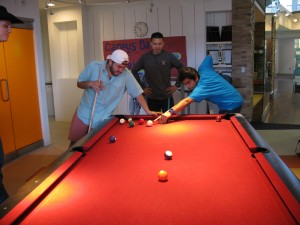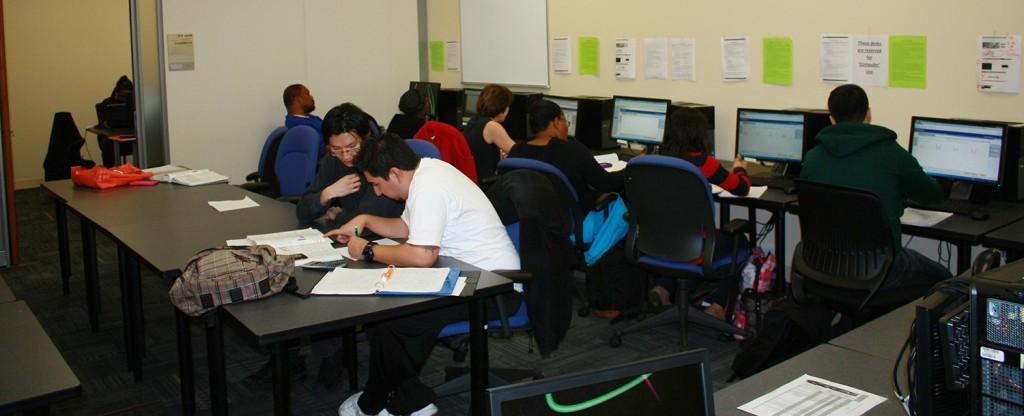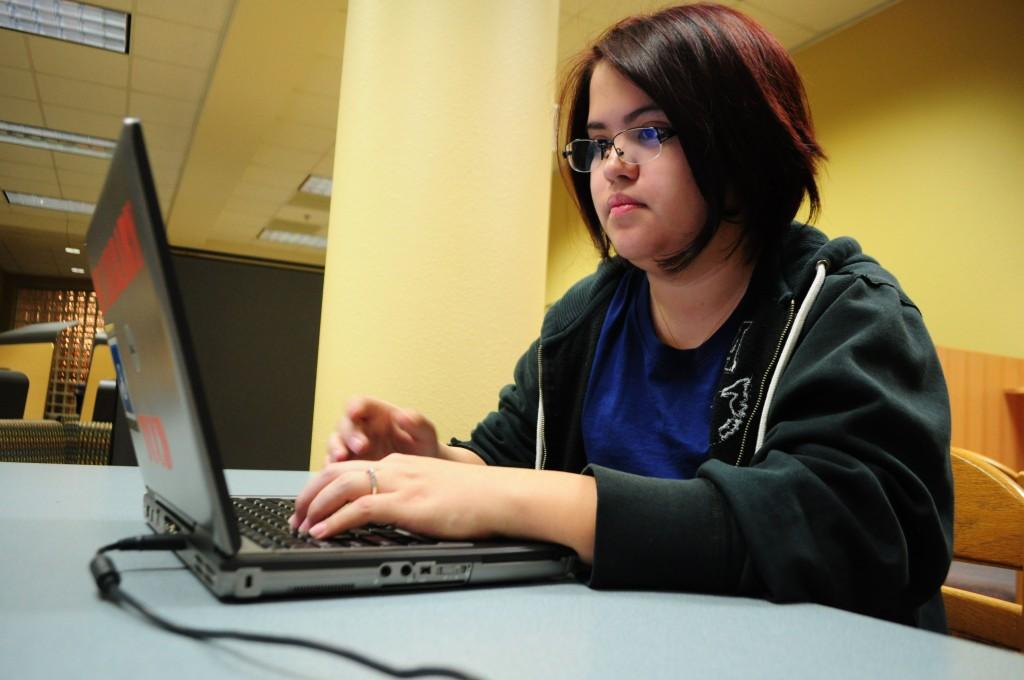
Photo by Kirsten Mahon/The Collegian
by Kirsten Mahon/tr news editor
School is a landscape of individuals interacting and communicating with each other, each fulfilling a role in the bigger picture. Each student and faculty member has to find ways to connect to keep from fading away from the scene.
“I think there is a wealth of fantastic people who work here,” said Mayra Olivares-Urueta, TR student development services director.
New to TCC, Olivares-Urueta has worked in both two-year and four-year colleges and believes student attitude is different in four-year colleges.
“When you’re at a four-year university, academics are your job,” she said.
Lifestyles tend to be a little different among four-year college students because of the atmosphere, Olivares-Urueta said. Students are typically locked into their experience without commuter campuses and with a solid department of full-time faculty members.
Olivares-Urueta said research shows that when students feel they’re part of the campus, they’re more likely to stay in school until they graduate. This connection includes joining clubs or attending school events as well as discipline and communication in the classroom.
Chani Neff, TR student government association president, said engagement is controlled by varying factors as each student and faculty member is different.
Neff agreed that the attitudes of four-year college students differ because two-year college students are more likely to get lifetime experiences under their belt while in school.
“We’re not in a four-year university,” she said. “We’re not sitting here thinking about school all day.”
Neff acknowledges the diversity among the student body she serves as part of the student government association. At TCC and most community colleges, students are raising families and working full-time jobs as well as studying. Their engagement on campus is important because they typically have a heavier load than a student with only academics as their job.
“I’m not knocking four-year college students,” Neff said. “They work really hard. Their classes are a little bit harder than ours, but we’re learning skills that involve real-world situations.”
The diversity among students carries the attitudes and expressions from different generations and lifestyles. Blending them together in a classroom sets the scene for either healthy interactions or a static environment void of engagement.
TR student Randal Head said expressing oneself in class also benefits other students.
“I’m very empathic,” Head said. “I can feel the emotions in the room. The energy affects me.”
In his art appreciation class, he barely remembers what he’s learned. The static, dull energy, he believes, deadens the desire to connect.
“I remember a few things,” he said, trying to recall what he had taken away from the class. “It’s a very dull subject. I don’t think there’s anything the teacher could do.”
In his other classes, Head remembers faces and voices in classes full of students with lively personalities. To Head, a constant back and forth between students and the instructor makes a class period worthwhile.
“There is a time in every student’s development where you need to start thinking consciously of how you express yourself in a professional setting and how you’re going to marry that,” Olivares-Urueta said. “As a college student, you have so much fantastic freedom.”
In any setting, however, a balance should be set and understood by both faculty members and students. Olivares-Urueta said that today’s society has not yet exemplified appropriate means of self-expression in diversified classrooms, which are now different compared to 50 years ago when student populations were much less diverse.
“We need to be considerate of other students’ learning styles,” Neff said. “We are all here with the same goals.”
Neff said there is a difference between students being themselves and having situational awareness.
Neff said that two-year college graduates have communicative skills that make them marketable to four-year colleges.
”I’ve got family life, I’ve got work life, I’ve got school and I’m trying to take care of myself,” she said.



























